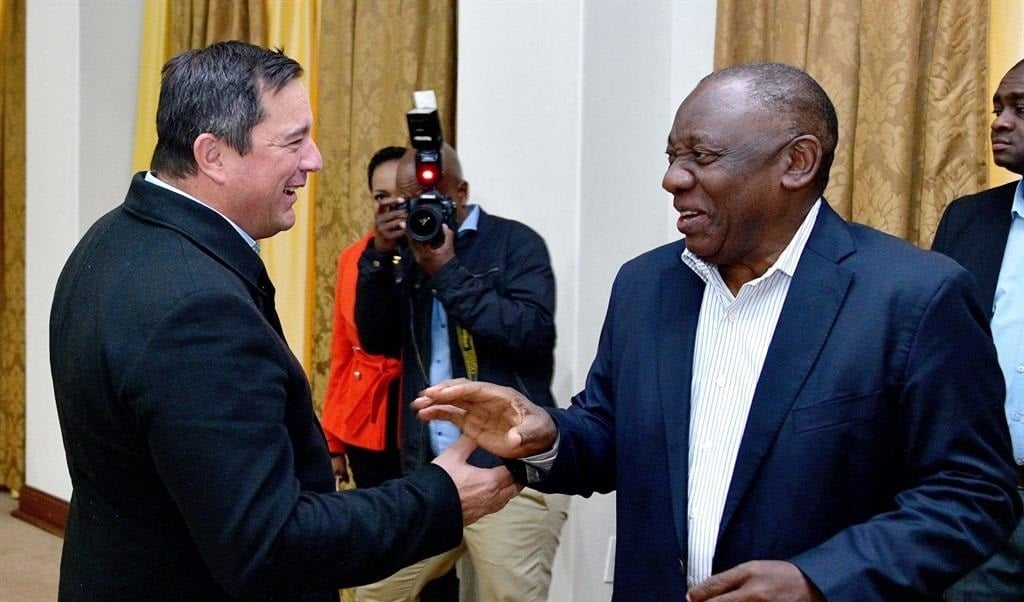
In a groundbreaking development, South Africa’s ruling African National Congress (ANC) and the opposition Democratic Alliance (DA) are reportedly on the brink of striking a historic agreement aimed at addressing the country’s economic challenges and stabilizing the Government of National Unity (GNU). This unprecedented partnership is expected to bring together the ANC’s vast political influence with the DA’s more business-oriented policies to create a roadmap for economic recovery.
The looming deal is set to mark a significant shift in the political landscape of South Africa, where the economy has faced numerous difficulties, including rising unemployment rates, persistent poverty, and widespread corruption allegations. As both parties work toward finalizing the agreement, the future of the GNU a government coalition designed to bring together political rivals for the sake of national stability hangs in the balance.
While specific details are still under wraps, sources close to the negotiations reveal that the deal focuses heavily on key areas such as job creation, investment in infrastructure, economic reform, and tackling corruption. The ANC, traditionally aligned with the country’s labor unions and state-owned enterprises, is expected to soften its stance on certain policies, embracing more market-driven approaches in exchange for the DA’s commitment to support critical government initiatives.
A major area of contention has been the country’s state-owned enterprises (SOEs), which have long been a source of inefficiency and financial drain on the government. The DA, with its strong push for privatization and greater transparency, has called for reforms within SOEs. The ANC, on the other hand, has been more protective of these entities, viewing them as vital to creating jobs and ensuring economic access for South Africa’s historically marginalized communities.
The agreement also includes proposals to streamline the regulatory environment, attract foreign investment, and develop new industries, particularly in technology and renewable energy. Both parties agree that economic growth and job creation are paramount in the country’s recovery, and this deal may serve as the foundation for South Africa’s future economic strategies.
The Government of National Unity, a coalition formed after South Africa’s first democratic elections in 1994, has long served as the symbol of the country’s commitment to reconciliation and progress. However, recent years have seen mounting tensions between coalition partners, especially as the ANC has struggled with internal divisions and allegations of corruption.
The DA, as one of the leading opposition parties, has repeatedly criticized the ANC’s governance, particularly in economic matters. Despite this, the DA’s willingness to negotiate with the ANC on critical issues signifies a shift toward cooperation, recognizing that the country’s future stability depends on overcoming political polarization.
Analysts suggest that the deal between the two parties could pave the way for further collaboration within the GNU, potentially strengthening the country’s political institutions and enabling more effective governance. This collaboration, however, is not without risks. Some within the ANC’s ranks view the deal as a betrayal of party principles, while DA members have expressed concerns over the ANC’s track record of implementing reforms.
The public’s reaction to the news of a possible agreement has been mixed. While some South Africans are hopeful that this will lead to a more robust economy and job opportunities, others are skeptical about the feasibility of such an alliance, given the ideological differences between the ANC and DA. Critics argue that the deal could be short-lived if the parties fail to find common ground on key issues, particularly social welfare programs and labor laws.
Nevertheless, the deal represents a rare moment of unity in South African politics, with both major parties recognizing the need for drastic change to avoid a complete economic collapse. For the ANC, this agreement could help reinvigorate its standing in the eyes of the electorate, while the DA stands to gain credibility as a pragmatic player in national governance.
If the deal is finalized in the coming weeks, it will likely lead to a series of policy changes and economic reforms aimed at boosting confidence both locally and internationally. South Africa’s international partners, including investors, trade allies, and financial institutions, will be closely watching the deal’s implementation. Success could signal a new era of economic growth, while failure may see further political instability and a continuation of South Africa’s economic challenges.
As the talks continue, both the ANC and DA will need to carefully manage their public messaging, as well as their internal factions, to ensure the deal remains on track. The future of the Government of National Unity and South Africa’s economic prospects will largely depend on the outcome of this high-stakes negotiation.
South Africa stands at a crossroads. With the ANC and DA closing in on a critical deal to rescue the country’s economy and stabilize its Government of National Unity, the stakes could not be higher. While the outcome remains uncertain, the potential for cooperation between two historically rival parties offers hope for a more prosperous and unified future for South Africa.

